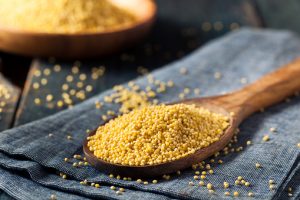
Joint pain can be problematic because it can prevent you from doing simple everyday tasks, which can take a toll on yourself. No one wants to feel like a prisoner in their own body, especially when it’s caused by pain.
A good way to minimize pain is by reducing inflammation. Although you can take over-the-counter anti-inflammatories, your diet plays a large role in reducing inflammation naturally. Here are some anti-inflammatory foods you should eat, especially in the winter months, to prevent and manage joint pain.
Foods that reduce inflammation
Millets
This gluten-free grain contains components known to be powerful anti-inflammatories, which can help reduce joint pain.
Herbs and spices
Not only do herbs and spices make your food taste better, but many of them are natural anti-inflammatories, so cooking with them can help relieve pain. Some examples of anti-inflammatory herbs and spices include ginger, dill, onions, lemon, and coriander.
Yogurt
Containing calcium, yogurt keeps the bones strong. It also has anti-inflammatory properties to relieve joint pain.
Fruits and berries
Plenty of fruits and berries are packed with powerful antioxidants, which help fight free radicals, which can contribute to further inflammation. Therefore, a reduction in free radicals leads to a reduction in inflammation and less joint pain.
By incorporating more of these types of food into your diet, you can experience reduced joint pain this winter and year-round.
Related: Avoid these foods if you have joint pain